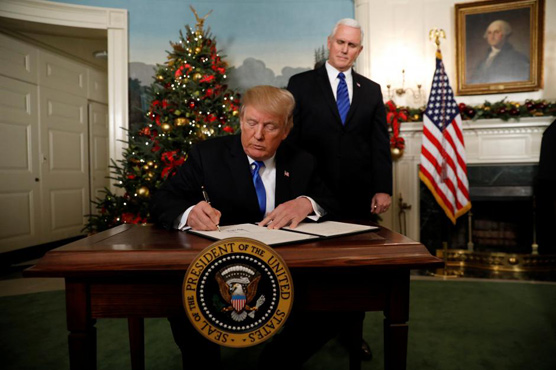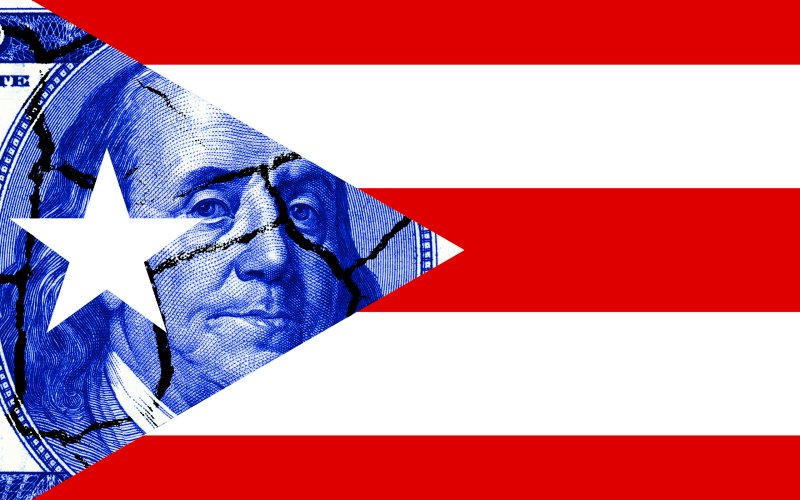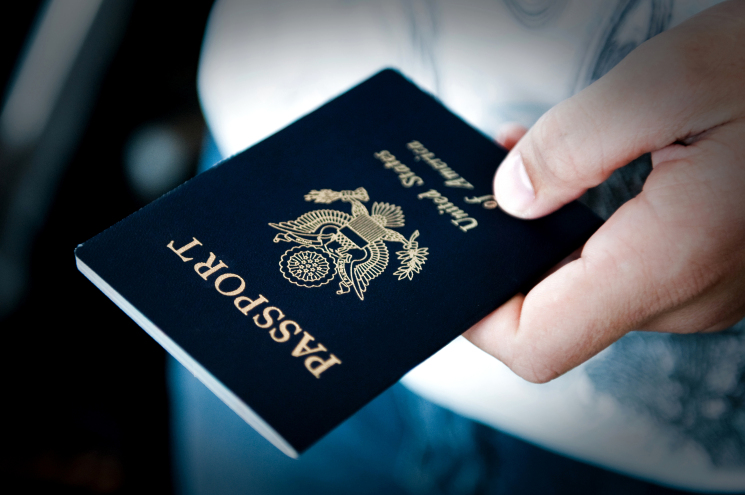US Expats and Retained Earnings in Foreign Corporations for 2018
The days of retained earnings in offshore corporations are officially over. No longer can those of us living and working abroad hold profits in excess of the Foreign Earned Income Exclusion inside of our corporations tax-deferred. Here’s what you need to know about US expats and retained earnings in foreign corporations for 2018.
Please note that this article is focused on offshore corporations owned by US persons in 2018. A US person is a US citizen or green card holder no matter where they live or a US resident. For a more detailed and code focused article on this topic, see: Bloomberg on Controlled Foreign Corporations.
Also, there’s some speculation in this post and things are subject to change. The IRS has not issued guidance on how Trump’s tax plan affects US expats and retained earnings in foreign corporations in 2018. Though, every expert I’ve spoken with agrees that the days of retained earnings in excess of the FEIE are over.
A few short months ago, we expat entrepreneurs were all excited about Trump’s tax plan. He was going to eliminate worldwide taxation and move the United States to a territorial tax system. The US is the only major country on earth that taxes its citizens abroad, so this sounded great.
Well, the final bill fell far short of President Trump’s campaign promises. While multinationals were converted to a territorial tax system, and no longer pay US tax on foreign-sourced profits of their international divisions, the small to medium sized expat entrepreneur got the shaft.
If you’re an American expat operating a business abroad, you’ll want to sit down before reading this post. My buddy Gary said it best, “Trump has cut the legs out from under the American expat in favor of the Apples and Googles of the world.”
Let me start by defining a few terms.
For my purposes here, an American expat is a US citizen or green card holder living outside of the United States. They qualify for the Foreign Earned Income Exclusion by being out of the US for 330 out of 365 days or by becoming a legal resident of a foreign country over a calendar year. A resident of a foreign country might spend a couple of months in the US, but never more than 183 days in a year.
Those who qualify for the FEIE in 2018 get to exclude up to $104,100 in ordinary income from their US tax return. That means they get up to $104,100 in salary or business income tax-free because they’re living abroad. All capital gains and salary in excess of the FEIE is taxable in the United States (I’ll leave the Foreign Tax Credit for another day).
US expat business owners have traditionally held profits in excess of the FEIE inside their foreign corporations as retained earnings. This allowed them to defer US tax on these profits until they took them out as dividends. For more on this, see my 2013 article, How to Manage Retained Earnings in an Offshore Corporation.
Then Trump’s tax plan came along and smashed American expat entrepreneurs. As with any tax overhaul, there are winners and losers. We expats apparently didn’t donate as much as the multinationals, so we’re the big losers.
The Tax Cuts and Jobs Act introduced major changes to the international tax provisions of the United States Internal Revenue Code of 1986, as amended, which generally govern the tax consequences to US persons with foreign corporations. Some of these changes may have an impact on the tax structure of US expats.
As a result of the new international tax provisions, the US owners of a foreign corporation, which are controlled by US persons, may be subject to (i) a “toll tax”, (ii) a tax on deemed “global intangible low-taxed income” (GILTI) and a minimum base erosion and anti-abuse tax (BEAT) in the United States, and thus US tax deferral on the income earned abroad in excess of the FEIE may be lost.
To put that into English, The Tax Cuts and Jobs Act hits expats on two fronts:
- We must repatriate foreign retained earnings from prior years and pay US tax at 15.5% on those profits. This tax can be spread over 8 years.
- The ability of expats to retain profits in a foreign corporation is eliminated. We must now pay US tax on our profits in excess of the Foreign Earned Income Exclusion. A business owner can earn $104,100 tax-free, or a husband and wife both working in the business can take out a combined $208,200 in 2018 free of Federal income tax.
So, an American expat that nets $1 million a year in his or her business will pay US tax on about $897,000, no matter where they live. The ONLY exception and the only place on the planet where Trump’s tax plan can’t reach is the US territory of Puerto Rico. More on that below,
The new tax law eliminated retained earnings in offshore corporations with a very small change to the law. It put just about every income category under the Subpart F of the tax code. Interestingly, oil revenue was the only item removed from Subpart F… I wonder how that happened.
Subpart F income in an offshore corporation is not eligible to be retained tax-deferred. It must be passed through to the shareholders and taxed. Shareholders pay tax on Subpart F income whether or not they actually receive it, much like income in a US LLC.
As a result, if your foreign corporation is a CFC, ordinary business income is now Subpart F income and taxable in the United States as earned.
For an article on the previous definition of Subpart F in a CFC, see: Subpart F Income Defined. If you’re a glutton for punishment, or just nostalgic for the good old days of 2017, see: How to Eliminate Subpart F Foreign Base Company Service Income.
I should also note here that US tax breaks for “pass-through entities,” such as domestic LLCs and S-Corporations are not available to expats. We got all of the bad and none of the good from Trump’s tax plan.
If you’re an American living and working abroad, you have a few options in dealing with Trump’s tax plan and the burden it puts on expats.
The most practical step is to form a US C corporation and start over with a new offshore corporation. Pay the repatriation tax on previous years in your old corporation and start fresh with a structure designed for 2018.
Building out a new structure that includes a US corporation might cut your US corporate tax by 50%. The current US rate is 21% and this can be reduced to 10.5% with a 50% credit in certain situations. In 2026 and beyond, the rate rises to 13.1%. For a detailed article from Harvard, see: Tax Reform Implications for U.S. Businesses and Foreign Investments and scroll down to the section on Low-Taxed Intangibles Income.
This US corporate strategy is much more complex than it sounds. Expat entrepreneurs need to watch out for double taxation. When you take out retained earnings from your US corporation as a divided, you’ll usually pay US tax on the distribution (on your personal return). Careful planning should go into building this structure and a long-term tax plan that minimizes double taxation must be developed.
Another option for businesses with partners abroad is to change their CFC status. The tax laws described here generally apply to Controlled Foreign Corporations. A CFC is a foreign corporation owned by US persons (residents, citizens and green card holders). If US persons own or control more than 50% of the business, it’s a CFC.
If you’re working with non-US persons abroad, you might restructure your business so it’s not a CFC. For example, a US company and a foreign company are working together on deals as separate entities. They might decide to join together in one corporation with each party owning 50% of the shares and having 50% control over the business.
Another option is to buy a second passport from a country like St. Lucia and renounce your US citizenship. Note that it’s not sufficient to buy a second passport to avoid US taxation. You must also renounce your US citizenship and go through the expatriation process. This will take many months and can have a tax cost (exit tax).
In my opinion, every US expat entrepreneur that wants to maintain their citizenship, and is netting $500,000 to $1 million a year in a portable business, should move to the US territory of Puerto Rico. Puerto Rico is the only safe haven on earth not affected by Trump’s tax plan.
If you’re willing to move to Puerto Rico, and spend 183 days a year on the island, you’ll cut your corporate tax rate to 4%. If that’s not enough, you’ll also cut your capital gains rate on assets acquired after you become a resident to 0% (yes, that’s zero, nada, nothing). This zero percent tax rate also applies to dividends from Act 20 companies. ‘
For information on Puerto Rico’s Act 20 and 22, see: Changes to Puerto Rico’s Act 20 and Act 22.
As you read through the many articles on my website about Puerto Rico, note the following changes for 2018:
- Act 20 no longer requires you hire 5 employees. You can move to Puerto Rico and be the only employee of your business.
- Just like offshore corporations, Puerto Rican corporations can no longer retain earnings. This means that US shareholders of Act 20 companies who are living in the US no longer get tax deferral. To put in another way, after Trump’s tax changes, Puerto Rico’s Act 20 is only available to US citizens and green card holders willing to relocate to the island and spend 183 days a year there.
For an article that compares Puerto Rico’s tax incentives to the FEIE, see: Puerto Rico Tax Deal vs Foreign Earned Income Exclusion.
I suggest that Puerto Rico is best for portable businesses netting $500,000 to $1 million a year. I get to this number because of the fact that you, the business owner, must pay yourself a fair market salary. This salary is taxed at ordinary income rates in Puerto Rico. Then your corporate profits, which are net business income after you pay yourself a “reasonable” salary, are taxed at 4%.
You then distribute these profits to yourself as a tax-free dividend. Even if you move back to the United States, you’ll never pay personal income tax on the dividend. To see this is the US tax code, go to IRC Section 933.
So, Puerto Rico’s tax deal is basically the inverse of the FEIE. With the Exclusion, you get $100,000 tax-free and pay US tax on any excess. With Puerto Rico, you pay tax on your first $100,000 in salary and 4% on any excess.
If you don’t move to Puerto Rico, and remain offshore, your international businesses should be operated through a foreign corporation in a low or zero tax country. Operating your business without a structure or through a US corporation means you’ll also be stuck paying Self Employment tax at 15%. No matter your tax situation, an offshore corporation will almost always reduce your net IRS payment.
All expat business owners should be operating inside an offshore corporation to eliminate Self Employment tax and to maximize the value of the Foreign Earned Income Exclusion. You then report your salary from this company on IRS Form 2555 attached to your personal return, Form 1040.
I hope you’ve found this article on US expats and retained earnings in foreign corporations for 2018 to be helpful. This is sure to be a very hectic and confusing tax year. It’s in your best interest to seek planning advice from an international expert early in the year to minimize the impact of Trump’s tax plan on your bottom line.
For more information on restructuring your business, please contact us at info@premieroffshore.com or call us at (619) 483-1708. We’ll be happy to work with you to build a new and compliant international structure.












Leave a Reply
Want to join the discussion?Feel free to contribute!